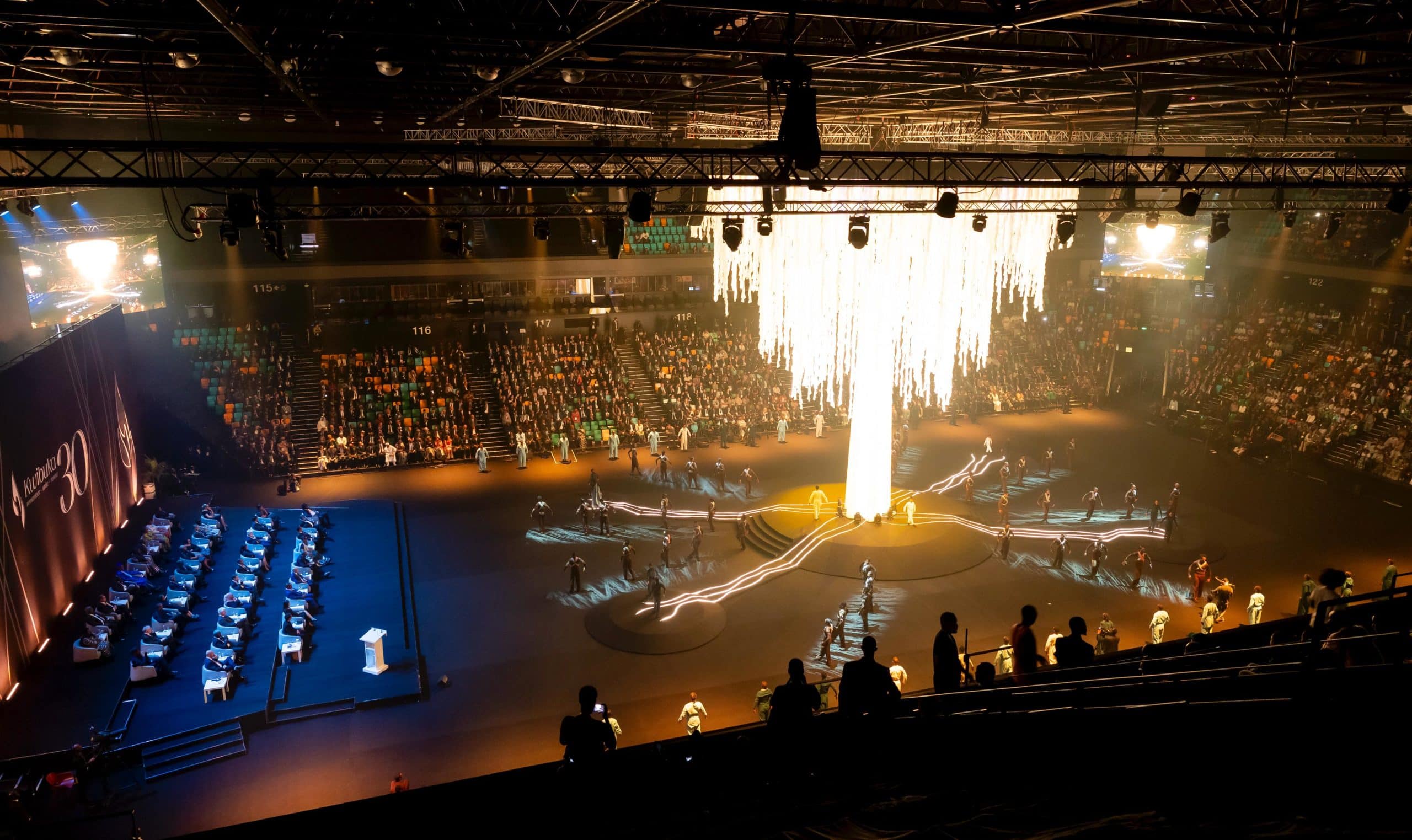On April 7, world leaders, including several Heads of State such as South Africa’s Cyril Ramaphosa and former United States President Bill Clinton, joined Rwanda for the 30th commemoration of the genocide against the Tutsi. Known as Kwibuka30 and held under the theme Remember-Unite-Renew, it honored the memory of the victims of the genocide and reflected on the country’s three-decade journey of national unity, reconciliation, economic growth and development.
This date in 1994 had seen the merciless massacre of over a million Tutsis. In just 100 days, men, women, children and even the elderly, were indiscriminately killed. Their only crime was their ethnicity.
In the ceremony held at the Kigali Genocide Memorial – the final resting place for over 250,000 victims – Rwanda’s President Paul Kagame and First Lady Jeanette Kagame lit the Flame of Remembrance that will burn for the next 100 days. At the BK Arena, a somber ceremony marked the opening of a week of remembrance. In the middle of the arena was a stunning, well-lit tree-like decorative piece that the organizers described as: “The tree’s branches and foliage represent the protection that targeted families could not find, during the genocide, and that Rwandans today can count on. The upright trunk echoes the aspirations of the young generation, reinforced by the internal light and flowing sap of life within. The roots illustrate the memory of the past that we must preserve, our shared Rwandan culture on which we are all anchored, and from which we draw inspiration and strength, to reach for the sky, as we build a brighter future.”
Young Rwandan artists retold the country’s story through moving contemporary song and dance performances, demonstrating how Rwanda has risen from the ashes over the years and is rebuilding, brick by brick.
Many in the arena could not hold back tears as Marie Louise Ayinkamiye, a survivor, shared her testimony. She was only 11 years old when the genocide happened. Her father and four siblings were brutally killed. Ayinkamiye said that though the impact of the genocide continued long after the killings stopped, survivors had to tap into their inner strength and forge ahead with courage and determination. “We survivors are strong. We will build the country together,” she said.
Loading...
In a heartfelt message to the nation, President Kagame began by condoling with the genocide survivors and thanking them for agreeing to bear the burden of reconciliation.
“Today, our hearts are filled with grief and gratitude in equal measure. We remember our dead, and are also grateful for what Rwanda has become. To the survivors among us, we are in your debt. We asked you to do the impossible by carrying the burden of reconciliation on your shoulders. And you continue to do the impossible for our nation, every single day, and we thank you.”
On the way forward and the country’s future, the President said that the youth are Rwanda’s source of hope and confidence. “Only a new generation of young people has the ability to renew and redeem a nation after a genocide. Our job was to provide the space and the tools for them to break the cycle. And they have. Nearly three-quarters of Rwandans today are under age 35. They either have no memory of the genocide, or were not yet born. Our youth are the guardians of our future and the foundation of our unity, with a mindset that is totally different from the generation before.”
To conclude his remarks, the President made a strong statement: “Our people will never — and I mean never — be left for dead again.”
The international community has been accused of failing Rwanda in her hour of need. Clinton called the genocide the biggest failure of his administration. Secretary-General of the United Nations, Antonio Guterres, paid his tribute: “The genocide against the Tutsi in Rwanda 30 years ago is a stain on our collective consciousness and a brutal reminder of the legacy of colonialism and the consequences of hate speech.”
As part of the commemoration, four genocide memorial sites in Rwanda were added to UNESCO’s World Heritage List, in a historic decision that was well-received in Rwanda. At the same time, iconic monuments in various cities around the world, were lit in colors of the Rwandan flag, as part of a joint Rwanda-UNESCO initiative in collective memory of the genocide against the Tutsi.
Loading...
